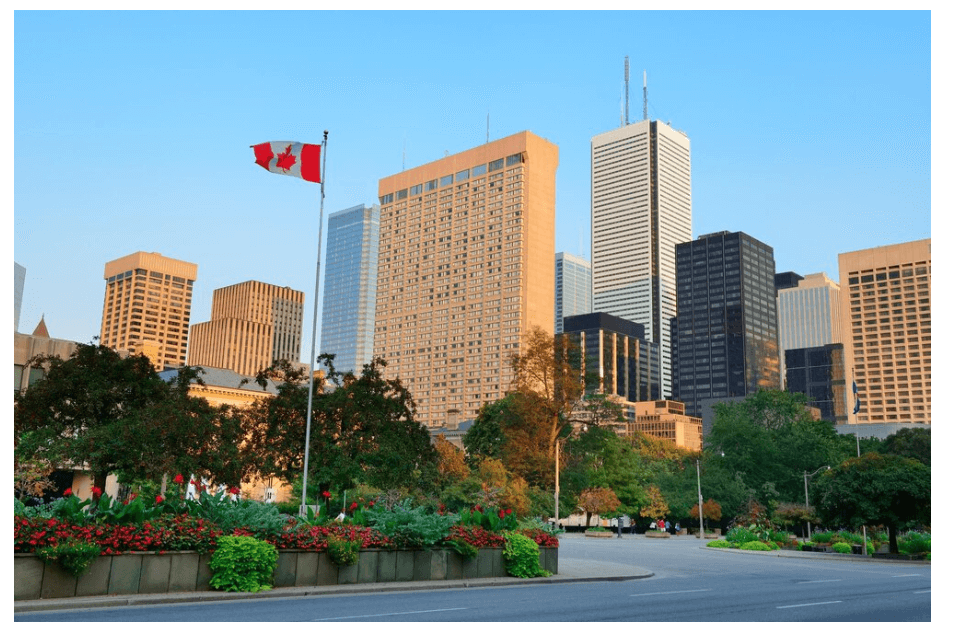Moving to a new community or country demands learning and adapting to new things for overall success. This article is prepared to empower you with the foreknowledge to avoid struggle.

Opening a Bank Account in Canada
Setting up a bank account soon after arriving in Canada is essential. You’ll need a Social Insurance Number (SIN) and a government-issued ID like a passport or Permanent Resident Card. Proof of address may also be required, such as a utility bill or a driver’s license. Canadian banks offer various account types based on your needs—some include cheque-writing options and most provide a bank card. With a bank card, you can use ATMs 24/7 to access funds and make purchases in-store, reducing the need to carry cash. Most accounts offer online banking to simplify bill payments and transactions.
Budgeting in Canada:
Planning for Financial Success
Canada’s living costs may be higher than expected, even with relatively good salaries. Budgeting—a strategic plan for managing finances—can help cover expenses without relying on credit. Here’s how to budget effectively:
Calculate Take-Home Pay:
Begin by identifying your take-home pay, or income after deductions like income tax, Canada Pension Plan (CPP), Employment Insurance, and any union dues or retirement contributions. If self-employed, set aside 30% of your income in a separate account for taxes, CPP, and other obligations. For more information on self-employment taxes, refer to the Canadian Small Business Guide.
Prioritize Essential Expenses:
Essential expenses include shelter, utilities, food, clothing, and transportation. To save on necessities, consider cost-effective housing, shop for deals on groceries, or use public transit instead of owning a vehicle. Essential costs may consume up to two-thirds of your budget.
Manage Non-Essential Expenses:
Luxuries, or non-essential expenses, cover items beyond the basics. After essentials, any remaining funds can go toward entertainment, gifts, or other personal wants. Prioritize long-term needs over luxuries, particularly when planning for healthcare, education, or savings.
Understanding Canadian Income Tax:
Employers generally withhold federal and provincial taxes from your pay. Each Canadian resident 18 and older must file an income tax return for the previous year between January 1 and April 30. Filing your taxes involves reporting income, deductions, and credits. Overpaid taxes are refunded, while underpaid taxes require an additional payment. For help with income tax, contact us via email or visit our website.
Financial Support for Children
The Canada Child Benefit (CCTB) provides tax-free monthly payments to eligible families raising children under 18. The CCTB includes the National Child Benefit Supplement (NCBS) for low-income families and the Child Disability Benefit (CDB) for children with severe disabilities. Applications take an average of 2–3 months to process. Visit the CCTB website or call 1-800-387-1193 for details and necessary forms. An incomplete application will delay processing, so ensure all required information is included.
Housing Options in Kitchener-Waterloo for Newcomers
Various housing types are available in the Kitchener-Waterloo area. This section covers options for newcomers, utility responsibilities, and support programs for low-income renters.
Renting in Kitchener-Waterloo
To find rental listings, check the Record Newspaper’s Classified section. Be aware that listings may cover areas outside Kitchener-Waterloo. Most rentals require a lease, often for a year, although some offer month-to-month options. A security or damage deposit, usually equal to one month’s rent, is typically required. Provided you uphold lease terms and leave the space in good condition, this deposit will be refunded upon move-out.
Utilities: Managing Costs for Essentials
Both renters and homeowners must budget for utilities like electricity, water, phone, and cable, though some rental agreements cover specific utilities.
Electricity:
Most properties have electricity for lights, appliances, and heating. Renters may have utilities included, while homeowners will receive a direct bill.
Water:
Typically covered by landlords for renters, water charges are billed directly to homeowners.
Phone Service:
Setting up phone service requires ID, such as a driver’s license, SIN, or Immigration client ID number for newcomers. A deposit may be required but will be refunded after timely payments.
